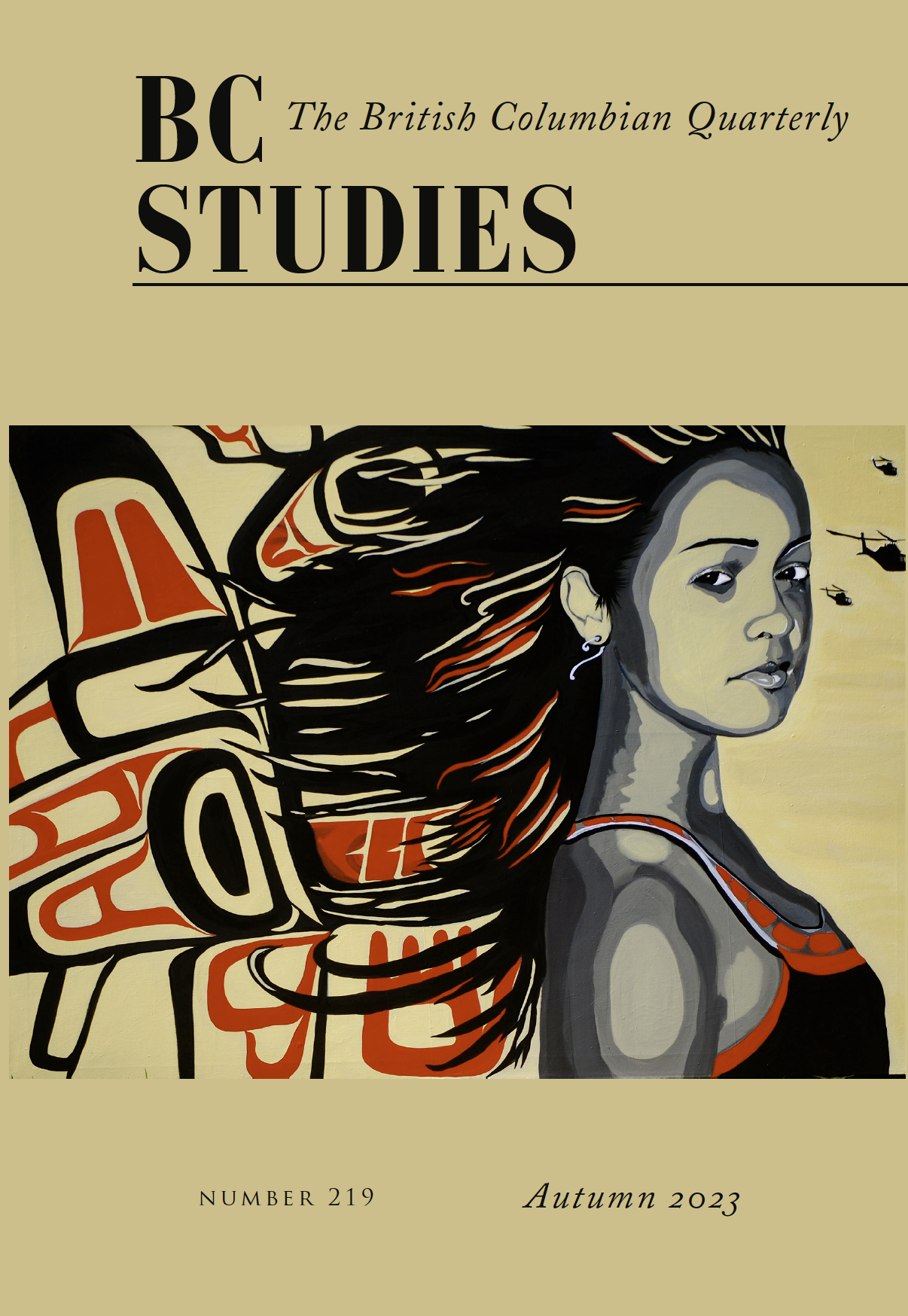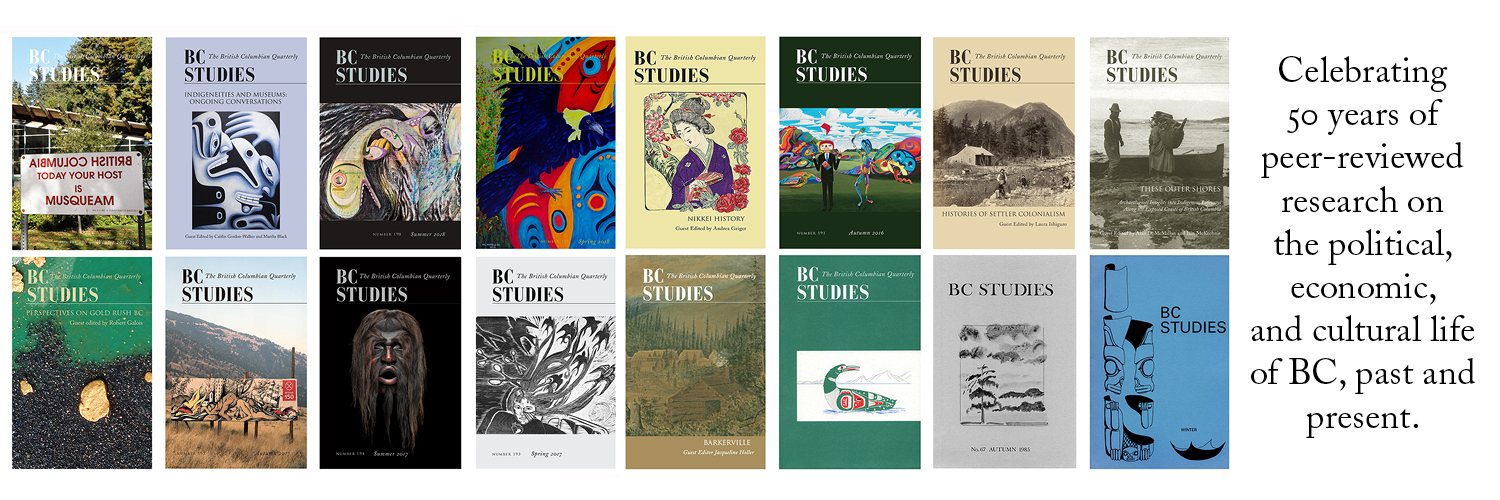Conversations with Judge Alfred Scow and Chief Simon Baker
Insights on Urban Indigenous Justice and The Vancouver Aboriginal Friendship Centre
DOI:
https://doi.org/10.14288/bcs.no219.198382Abstract
In August 1998, William G. Lindsay had published a thesis titled: “A history of the Vancouver Aboriginal Friendship Centre in an age of aboriginal migration and urbanization”. Lindsay's research delves into the phenomenon of Friendship Centres and the migration of Indigenous peoples to urban areas like Vancouver after the second world war. Further, the thesis explores the ways in which the effects of settler-colonialism on urban Indigenous communities in Canada have been distinct, particularly concerning the displacement caused by settler-colonial practices.
In the document, Lindsay often references, and cites excerpts from personal interviews they had conducted with three of the Vancouver Aboriginal Friendship Centre Society’s (VAFCS’) original founders: the late Chief Simon Baker (Sḵwx̱wú7mesh Úxwumixw), the late Judge Alfred Scow (Kwakwaka’wakw) and Marjorie White (Huu-ay-aht and Tseshaht). Through archival research conducted at the VAFCS, which now exists adjacent to Vancouver’s socially problematized downtown eastside (DTES), I have located a collection of records that, unfortunately excluding Marjorie Whites’ and as stated by Lindsay, are believed to contain the final existing records of these interviews.
Acknowledging that Vancouver is now home to Canada's largest urban Indigenous population and that the VAFCS continues to serve Vancouver’s urban Indigenous constituents; there is a lack of primary sources documenting its establishment, as recognized by Lindsay. In light of this, I have sought permission from Lindsay to digitize and archive interview transcripts to address this gap, all of which have been subject to the appropriate ethical reviews under the University of British Columbia’s office of research services.
The digitization and archival of these primary sources proves useful for several reasons. Firsty, Indigenous epistemological tradition values the importance of oral knowledge dissemination, thus, the preservation, archival and dissemination of these transcripts follows Indigenous protocol crucial in dismantling settler epistemological norms present in academia.
Furthermore, subsequent to the initial publication of Lindsay’ thesis, settler-Indigenous relations in Canada have become increasingly complex due to the troubling revelation of unmarked graves containing the remains of Indigenous children found on the premises of former residential schools. These continuous revelations serve as a profound illustration of the historical and systemic suppression of Indigenous voices and the comprehensive understanding of Indigeneity. Notably, despite Indigenous peoples having directly experienced, witnessed, and courageously denounced the atrocities perpetrated within these institutions, the prevailing settler cultural ethos necessitated the discovery of these unmarked graves as evidence in order to validate their longstanding claims. Given this, the reexamination of survivors' experiences through documentation, such as the transcripts at hand, becomes paramount in fostering a meaningful process of structural reconciliation.
Furthermore, it is important to highlight that, with the exception of Marjorie White, all the interviewees have regrettably passed away. While an epistemology that recognizes the significance of oral tradition acknowledges that these experiences endure within those who were receptive to listening to such narratives during the interviewee’s lifetimes, there is still inherent value in experiencing the phenomenological transcendence of hearing these stories directly from the founders of the Centre.
Given this, the interviews below have been translated and appear in the following order: Judge Alfred Scow, Chief Simon Baker.



